
US joins growing list of nations with confirmed Omicron cases

Intent to get booster lags among older Republicans and younger Blacks and Hispanics, US survey finds
From CNN’s Deidre McPhillips
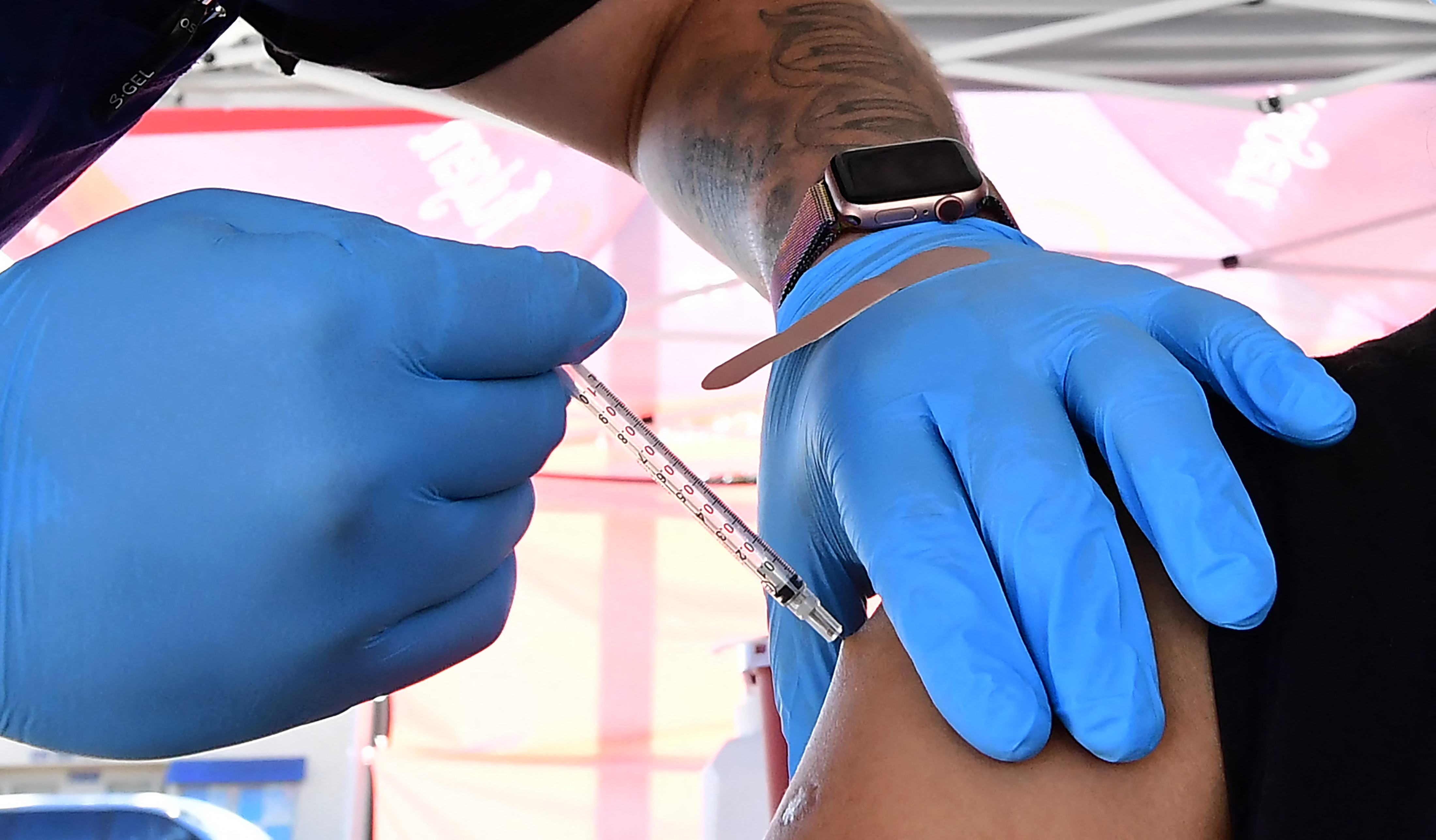
About 60% of fully vaccinated adults have already gotten their booster dose of Covid-19 vaccine or say they “definitely” will, according to the latest Kaiser Family Foundation Covid-19 Vaccine Monitor survey published Thursday.
Another 19% say that they “probably” will get a booster as recommended by the US Centers for Disease Control and Prevention, but nearly one in five (18%) say they “probably” or “definitely” won’t get a booster shot.
At least half of adults across political parties and racial and ethnic groups already have or say they definitely will get a booster dose, but intent among older Republicans and younger Black people is notably lower than average.
Among Democrats older than 50, about 87% already have or definitely plan to get their booster shots. But among older Republicans, only 58% said the same.
About two in five young Black and Hispanic adults and said that they already have or definitely will get a booster dose, compared to nearly three in five young White adults who said the same.
South Africans urged to get vaccinated immediately with warning that virus peak may come in 2 weeks
From CNN’s Tim Lister
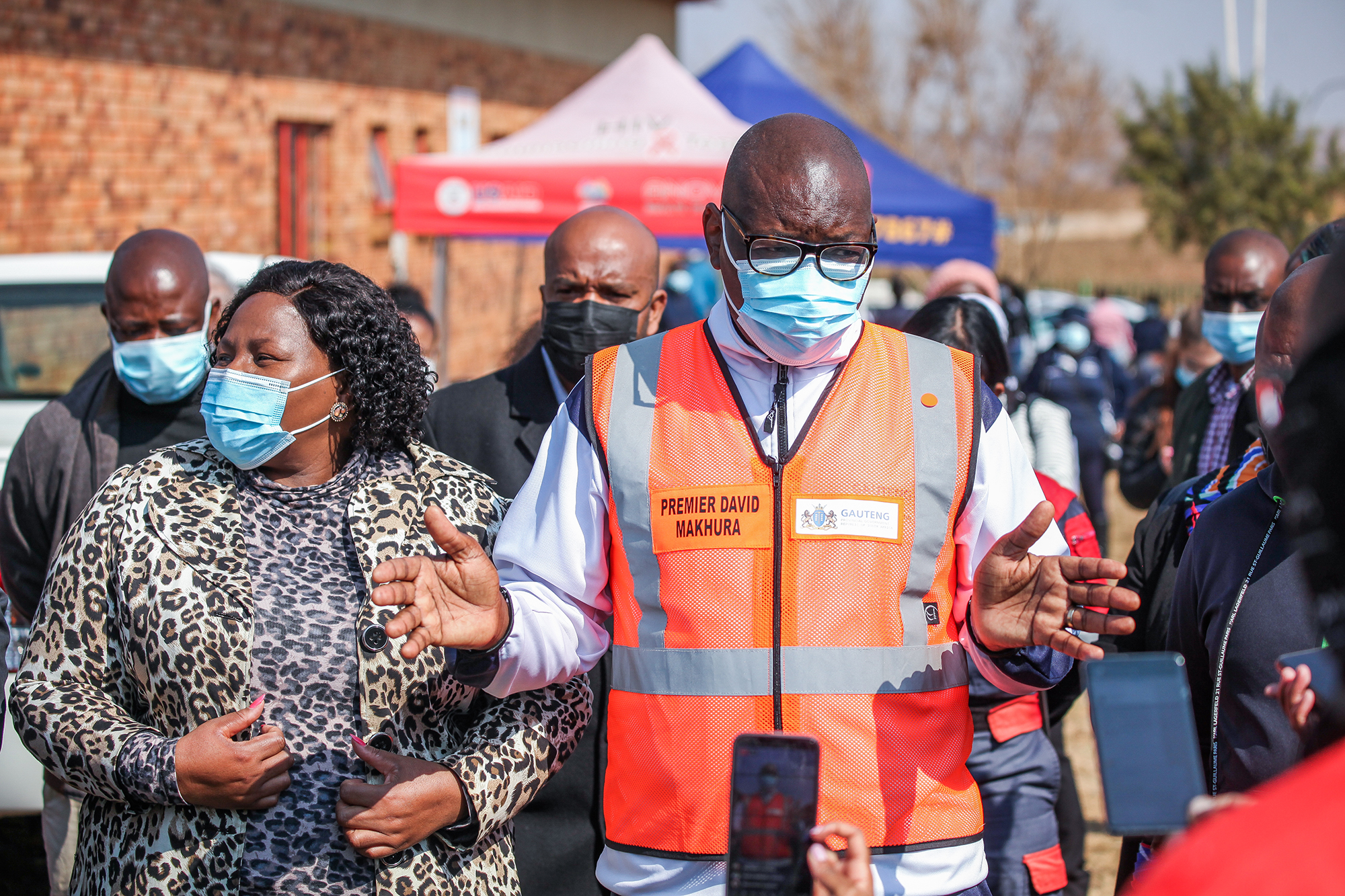
The leader of South Africa’s most populous province has appealed for unvaccinated people to come forward for their shots immediately, amid what he called a situation of “great concern,” especially among younger people.
David Makhura said that Gauteng province — which includes the major city of Johannesburg — was on the cusp of a fourth wave of the coronavirus pandemic.
Gauteng has seen a sudden spike in cases over the last month. Makhura said that until recently it was thought the increase was down to an existing virus variant but now it was clear that the new variant — Omicron — was likely responsible for many of the infections and was spreading rapidly.
In Gauteng, the Omicron variant now comprised 74% of sequences, said South Africa’s Network for Genomic Surveillance on Wednesday.
Makhura told a news conference: “We are very concerned with the reports we’re getting from our clinical teams.” Infections were rising rapidly, he said, driven by a resurgence among university students.
“We want to call upon the people of our province to step up their vaccination,” he added.
Makhura said the good news is that daily vaccination rates had risen this week to an average of more than 50,000 in Gauteng. But there were still 8 million people in the province — the most densely populated in South Africa — unvaccinated. He stressed the risk of thousands of people leaving the province during the Christmas holidays and carrying the variant with them.
He also said people needed to get their second doses, and that there was no shortage of vaccines. And he indicated that if vaccination take-up did not improve, there would have to be consideration of mandatory vaccination program
Makhura also suggested that the evidence so far was that for the vaccinated at least the symptoms of the variant were mild and hospital admissions were not very high.
Other officials at the news conference said they expected the peak of the current wave of infections in Gauteng to come within two to three weeks — at a daily rate of 45,000 cases. But they cautioned this depended on a number of factors.
Greece confirms first Omicron case
From CNN’s Chris Liakos
Greece has reported its first case of the Omicron coronavirus variant on the island of Crete, Greek Health Minister Thanos Plevris announced Thursday morning.
The patient in question traveled to the country from South Africa on November 26, according to Theoklis Zaoutis, the head of Greece’s public health organization. On arrival the man took a rapid test which came back negative. Following daily testing, he tested positive on November 29, and the Omicron variant was detected today.
His symptoms remain mild and he has been placed under quarantine, along with his contacts.
Zaoutis added that although there are still gaps in our knowledge and more information is needed about the new variant, “vaccines remain the main weapon,” while urging everyone to get their shots.
Greece recently announced mandatory vaccinations for citizens over the age of 60. Citizens who have not booked their first dose by January 16 will face a monthly €100 ($113) fine.
Americans split down party lines on workplace vaccine requirements and Biden’s pandemic handling
From CNN’s Deidre McPhillips
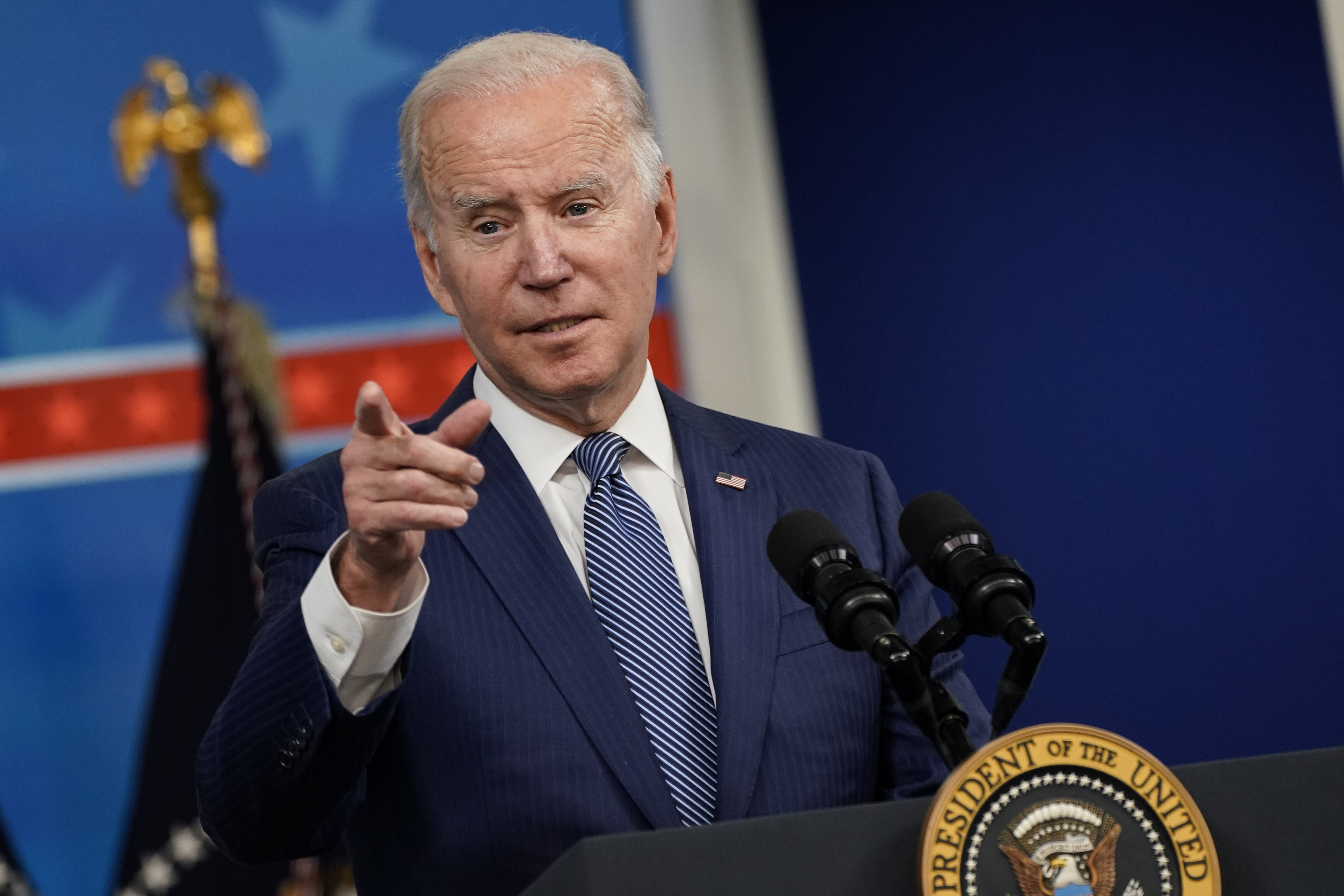
Americans are divided — largely down party lines and vaccination status — in their opinions on workplace vaccine requirements and how well President Joe Biden is handling the pandemic overall, according to the latest Kaiser Family Foundation Covid-19 Vaccine Monitor survey published Thursday.
Only slightly more than half (52%) of adults support the Biden administration’s policy that would mandate workers in companies with at least 100 workers to be vaccinated against Covid-19 or face weekly tests, while 45% oppose it.
The federal policy is on hold as it is debated in a federal appeals court, but more than a third of workers at large companies said they already have a vaccination requirement and another 17% want their employers to impose one.
Vaccine requirements are much less common at smaller companies; only about 11% of people working at smaller companies said a vaccine requirement was already in place and another 20% would want their employer to impose one.
Most Republicans (79%) oppose the federal policy, while most Democrats (86%) favor it. Opinions are similarly divided by vaccination status, with most vaccinated adults in favor and most unvaccinated adults against.
General perceptions about how well Biden is handling the pandemic overall are also split by political party and vaccination status.
Nearly nine in 10 Republicans say they disapprove, while more than eight in 10 Democrats say they approve. Similarly, nearly eight in 10 unvaccinated adults disapprove, while more than half of vaccinated adults approve, according to the survey.
Overall, nearly half of adults surveyed said the government has not done enough to help small businesses or low-income people during the pandemic. About 40% of those surveyed said the government has not done enough to help Black people, Hispanic people or rural residents.
The latest KFF Covid-19 Vaccine Monitor survey was conducted over two weeks in mid-November. All fully vaccinated adults became eligible to receive a booster dose at the end of the survey period, but the US Centers for Disease Control and Prevention issued guidance encouraging all vaccinated adults to get boosters, and information about the new Omicron variant become public, after the survey ended.
Results came from a survey of a nationally representative sample of 1,820 adults.
“Our first thought was: There goes our quiet December”: How scientists discovered Omicron and set off a global reaction
From CNN’s Tim Lister and David McKenzie in Johannesburg
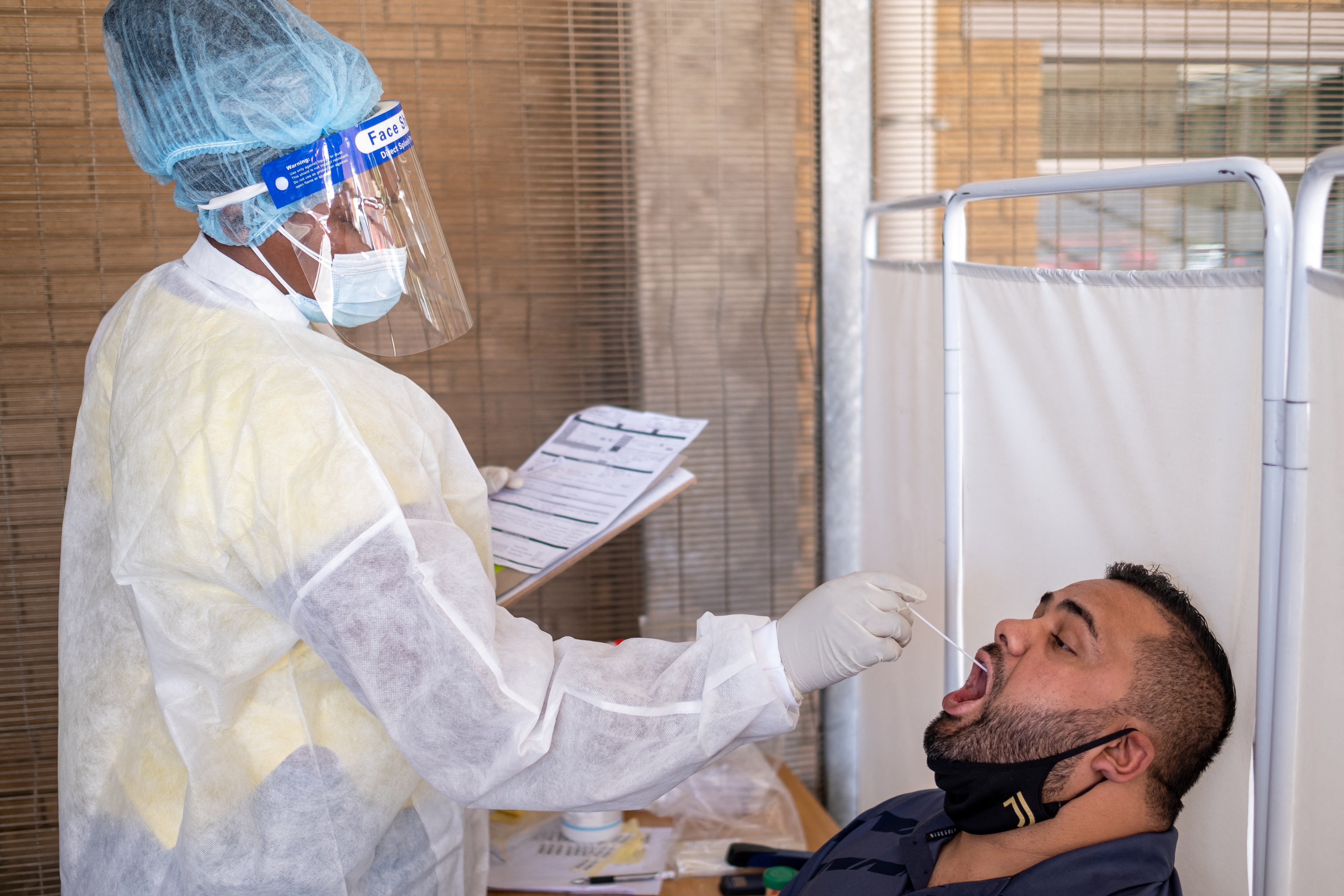
In the early days of November, laboratory technicians at Lancet Laboratories in Pretoria, South Africa, found unusual features in samples they were testing for the coronavirus.
Essentially, a gene was missing in what would be a normal genome profile of the virus. PCR tests weren’t detecting one of their expected targets, a signal that something about the virus had changed.
Just a few days later, the same phenomenon was reported at Lancet’s Molecular Pathology Department in Johannesburg.
Dr. Allison Glass, a pathologist with Lancet, said the discovery coincided with an increase in positive cases of Covid-19 in parts of South Africa.
In the province of Gauteng, which includes Johannesburg, fewer than 1% of people were testing positive at the start of November, but this rose to 6% within a fortnight and to 16% by Wednesday.
The discovery “raised concerns that we were in for another surge,” Glass told CNN. “Our first thought was: There goes our quiet December and a Christmas break.”
Three weeks later, what the South African scientists had stumbled across would be known worldwide as the Omicron variant of the coronavirus.
The spike in Gauteng didn’t go unnoticed at the Network for Genomics Surveillance in South Africa (NGS-SA). Its director, Tulio de Oliveira, called a meeting for November 23. He told the New Yorker: “We heard from one member in our network that a private lab, Lancet Laboratories, had sent in six genomes of a very mutated virus. And, when we looked at the genomes, we got quite worried because they discovered a failure of one of the probes in the P.C.R. testing.”
CERI rapidly upscaled testing of samples in Gauteng and found the variant appearing very frequently. Tulio later observed on Twitter that in less than two weeks the new variant “dominates all infections following a devastating Delta wave in South Africa.”
Read the full story here:
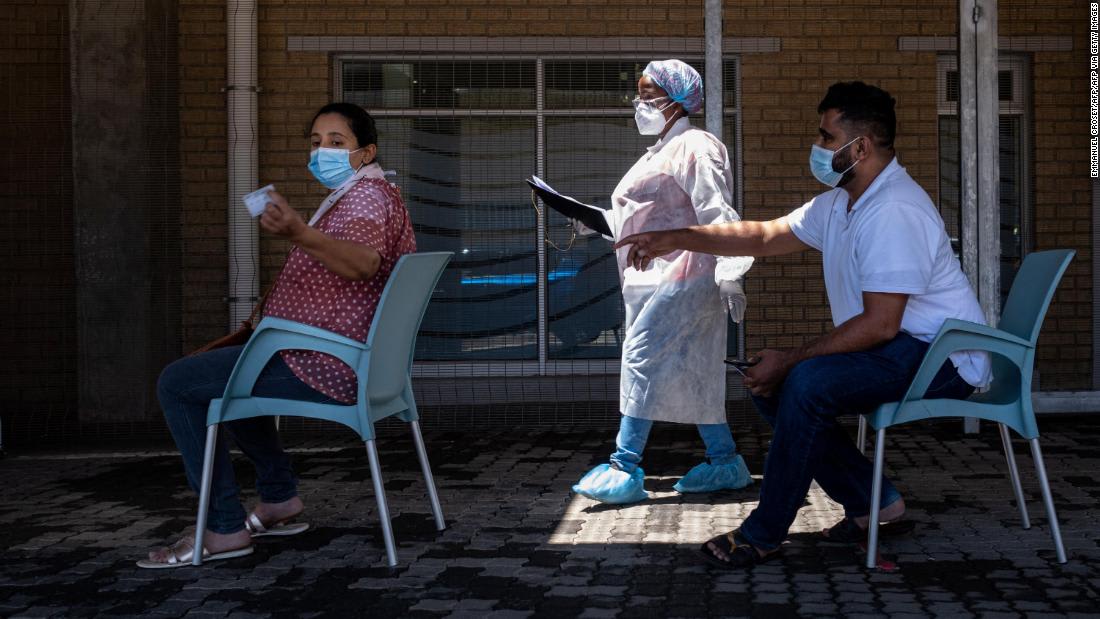
Biden to outline new steps to combat Covid in US through winter months
From CNN’s DJ Judd
As part of its ongoing efforts to combat the Covid-19 pandemic, the White House is announcing a slew of new actions Thursday aimed at fighting the pandemic and protecting Americans from the Delta and newly-discovered Omicron coronavirus variants.
President Joe Biden will detail the administration’s nine-pronged plan in remarks at the National Institutes of Health Thursday, just one day after officials confirmed the first recorded case of the Omicron variant in the United States in California.
“While this new variant is a cause for concern, it is not a cause for panic,” a senior administration official told reporters Wednesday ahead of the President’s remarks.
“We have the tools we need to confront this variant, to keep making progress in our fight against the virus, and we are using these tools to keep people safe, keep our schools open, and protect our economy,” the official added.
The plans addresses several areas:
Travel guidance for international and domestic travel
Building on new travel restrictions from regions affected by spread of the Omicron variant earlier this week, Biden will announce new steps Thursday tightening pre-departure Covid-testing protocol for all inbound international travelers, requiring a negative test within one day of departure for the US.
At this time, any foreign national who travels to the US must be fully vaccinated, though there remains no vaccination requirement for American citizens traveling via air, either globally or domestically.
The administration will also formally announce its plan to extend a mask requirement for domestic travel, originally slated to expire in January, until mid-March. The order, which was already extended earlier this summer, also applies to travel via rail and public transportation, and comes amid widespread reports of unruly passengers refusing to comply with mask mandates.
Increasing vaccine and booster outreach for seniors and children
Under the plan announced Wednesday, the administration is increasing vaccine outreach, including efforts, in partnership with HHS, AARP, and Medicare, to ensure an estimated 100 million Americans eligible for the Covid-19 vaccine booster get shots as soon as possible, including the launching of a nationwide public education campaigns, town halls, offering rides to vaccine and booster appointments for the nation’s “hardest-hit and highest risk older Americans.”
The administration will also unveil a series of steps aimed at increasing vaccination rates among children in an effort to keep schools open and protect children ages 5 and up.
As part of those efforts, the administration will launch “family vaccination clinics” aimed at offering vaccines and boosters for entire families at once and FEMA offering mobile vaccination clinics to reach hard-to-reach communities. The administration is also issuing a “Safe School Checklist” so schools can safely encourage vaccination and booster efforts and avoid outbreaks.
Biden will also announce further actions to export vaccines abroad, including 200 million more doses in the next 100 days, accelerating delivery to high-risk countries, while ramping up vaccine manufacturing to increase global production capacity.
Expanding testing and outbreak response efforts
Biden’s Thursday announcement will also new steps to increase Covid-testing, including the news that private insurers will reimburse the costs of at-home tests for more than 150 million Americans covered by private insurance. In addition, local community sites such as health centers and rural clinics will offer free at-home tests for those not covered by private insurance.
The president will also announce over 60 Winter Covid emergency response team deployments available to states to combat outbreaks and rising Covid cases nationally, expanding a program from the summer and fall.
South Africa’s Covid-19 cases appear to be spiking at “fastest rate since the start of the pandemic”
From CNN’s Sheena McKenzie, Becky Anderson, Tim Lister & David McKenzie
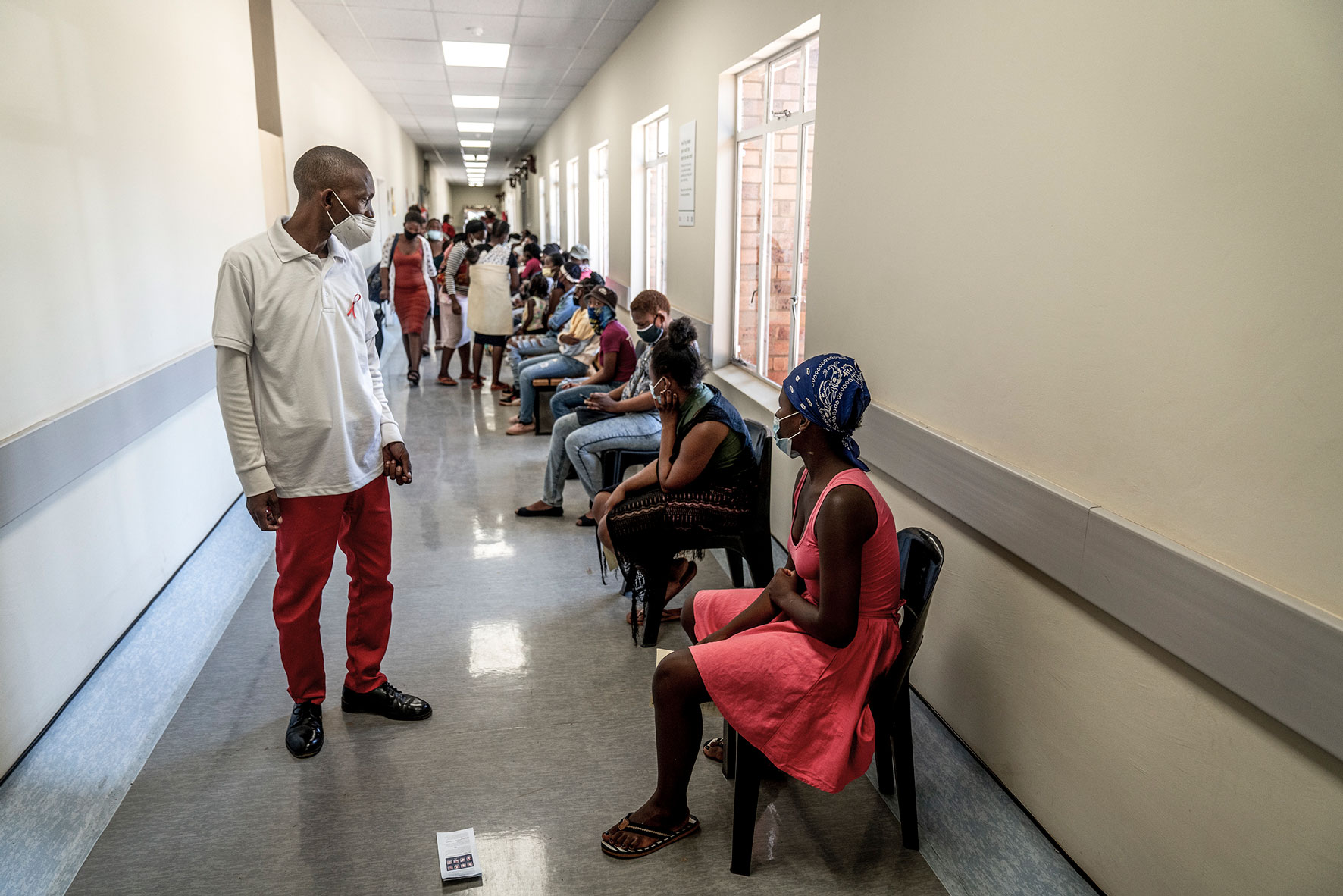
South Africa’s Covid-19 cases are “increasingly rapidly” at what looks to be “the fastest rate we have seen since the start of the pandemic,” Michelle Groome, head of the country’s National Institute for Communicable Diseases (NICD), told CNN Wednesday.
Weeks after Omicron was first detected, it is now the dominant variant in some provinces, according to health authorities. In Gauteng province — which includes the major city of Johannesburg — the Omicron variant comprised 74% of sequences, said South Africa’s Network for Genomic Surveillance on Wednesday.
The province has seen the sharpest rise in coronavirus infections in the last month, and testing is ongoing to determine the prevalence of Omicron in other districts.
Infections in South Africa appear to be surging, with around 8,600 daily cases on Tuesday, up from roughly 1,300 cases a week earlier, according to latest data from the National Institute for Communicable Diseases.
Groome said the rapid increase of cases was “concerning,” adding that testing of wastewater had alerted authorities relatively early to infections in the Pretoria district.
“Two weeks ago we were seeing case numbers and positivity rates which were the lowest since the start of the pandemic,” said Groome. She added that those numbers “have climbed rapidly to today” where scientists were looking at “positivity rates of over 15%.”
For now, it was unclear whether the rise in infections was “due to increased transmissibility of the Omicron variant or due to immune escape,” said Groome.
She added that cases had mostly been among younger people, which could be down to their increased social gatherings as schools broke up, as well as lower vaccination rates in that age group.
So far, doctors had observed “mostly mild cases,” Groome said, putting it down to a mostly younger demographic presenting.
As cases move into the older population, doctors will have a better idea of “whether we are seeing reciprocal increases in hospitalizations and deaths associated with it, or whether this really is more a mild disease,” Groome said.
First Omicron case identified in mainland France
From CNN’s Joseph Ataman in Paris
The first case of the Omicron variant detected in mainland France has been identified in the northern Ile-de-France region, French health authorities said Thursday.
A statement from the Ile-de-France regional health authority said the case, a man between ages 50 and 60, tested positive on Nov. 25 following his return from a trip to Nigeria.
The man, who was unvaccinated, was asymptomatic at the time of the test and was placed into isolation with the group he was traveling with, authorities said.
His wife — who is also unvaccinated and traveled with him — also tested positive for Covid-19, but the sequencing of her variant is still ongoing, the statement said.
The first case of the Omicron variant recorded on French territory was detected on the island of Reunion, officials said Tuesday.
It’s nearly 10 a.m. in Berlin and 6 p.m. in Tokyo. Here’s what you need to know about the Omicron variant
The Omicron coronavirus variant has prompted a fresh wave of travel restrictions and border closures as countries scramble to identify cases of the potentially more transmissible strain.
Here’s the latest major developments:
- Japan overturns flight embargo: Tokyo on Thursday canceled a ban on accepting new reservations for inbound flights. Japan’s Transport Ministry had asked airlines to refuse reservations on international flights to the country, but Prime Minister Fumio Kishida later said he had instructed the ministry to reconsider out of consideration for Japanese citizens’ need to return.
- Germany crisis talks: German Chancellor Angela Merkel and her likely successor are holding coronavirus crisis talks with regional leaders on Thursday. Tougher restrictions are likely to be agreed — many of which are set to target unvaccinated people.
- First US case: The United States has joined a growing number of countries that have confirmed Omicron cases. The case was identified in California in a person who traveled from South Africa before travel restrictions were in place.
- US mask mandate: The Biden administration will extend existing requirements for travelers to wear masks on airplanes, buses, trains and boats, as well as in airports and other transport hubs through March.
- UN chief’s appeal: UN Secretary General Antonio Guterres said widespread travel bans on southern African countries over fears of the Omicron variant were akin to “travel apartheid.” The bans were “unacceptable,” he added.
- WHO travel advice: The World Health Organization advised people in certain groups at higher risk of contracting Covid-19 — including the unvaccinated and those over 60 — to postpone travel to areas with community spread, in response to the new variant.
Source: https://www.cnn.com/world/live-news/omicron-covid-19-variant-12-02-21/index.html


















